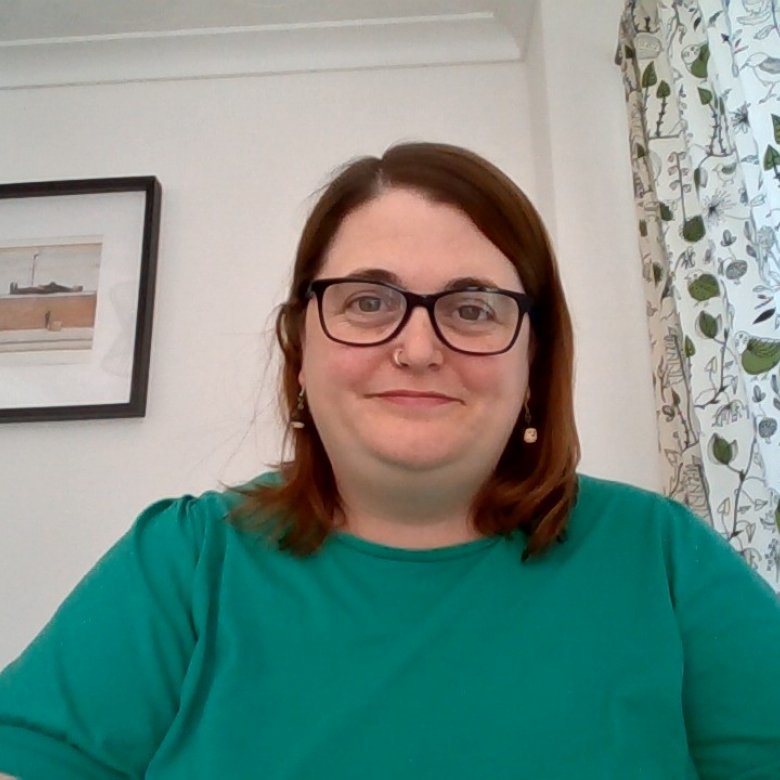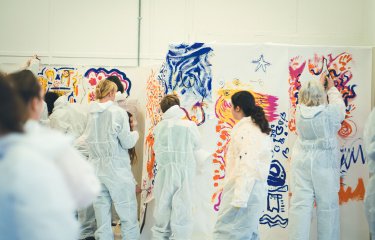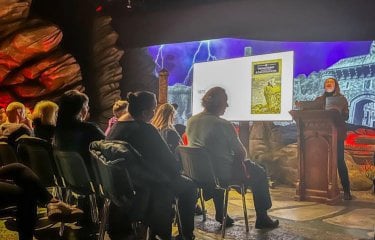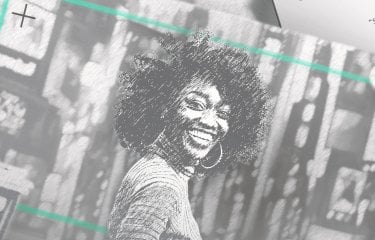Challenging the status quo: in conversation with education lecturer Esther Cummins
23 June 2022

We spoke to Esther Cummins, course leader for Falmouth’s new online master’s degree in Education, about inclusivity and equality, the gap between policy and practice, and why reflective practice is vital to challenging the status quo.
Using reflective practice to future-proof education
As a practitioner who has dedicated her career to teaching, leading others and striving to make our education systems more inclusive, it might come as a surprise to learn that Esther Cummins did not always feel a pull towards teaching.
“I had always vowed not to become a teacher; my mum taught for many years, and after seeing the dedication and hard work that she put into her role, I knew I couldn’t enter the profession half-heartedly", she tells us.
“However, following a couple of gap years where I did a lot of work with children, families, and young people, I realised that a teaching qualification could open a lot of different avenues. I applied to do a primary education degree knowing that I wouldn’t stay in the primary classroom forever, but it was the first time I studied something that I'd really loved.”
Policy vs. values
Esther is a lecturer and education leader and has recently been appointed as course leader for Falmouth’s new online Education MA. An active researcher, she is currently studying for a PhD examining the relationship between values, ethos, and policy in faith schools. She is focused on closing the gaps between theory, policy, and practice, with a particular interest in inclusive pedagogical approaches to teaching and leadership.
“I started my PhD to explore whether there is a difference between what policy says, what people say they do, and what people actually do in relation to values and ethos. Sometimes policy documents are written in isolation to other stakeholders and are not embedded in practice. I was particularly interested in what this may look like in a school where commonly held values may differ to those imposed by governance.”
Since joining the Falmouth team, Esther has been further developing the master’s in Education which will welcome its first cohort this September. Because it has been designed by educators for educators, it is a course embedded in practice, meaning students will be able to translate what they learn directly into their own settings.
A core area of focus on the course is reflective practice, forming the basis of the degree’s introductory module. It will develop in students a critical awareness of contemporary educational practice through exploration, critical reflection and analysis of a range of principles and theories fundamental to teaching and learning.
The importance of reflective practice in teaching
When I was new to teaching, I was very frustrated by phrases such as ‘this is how we have always done it’. Reflective practice enables us to ensure that the pedagogical approaches we have now are the best for our current students, not the ones from 1984!”, Esther tells us.
On the importance of reflective practice in teaching, she adds: “The beauty of reflective practice means that you do not have to change things if you don’t need to; rather, you adjust what is appropriate and you keep what is going well. As a reflective practitioner, you learn to take risks, celebrate successes, and respond appropriately to failures. Since this is what we hope our children, young people, and students do, it is important to model it as an educator.”
Another vital focus of the course is inclusivity, which draws on one of Esther’s other research interests and addresses one of the biggest challenges facing educators worldwide. Esther explains: “The pandemic has highlighted disparities that already existed between groups of learners. News stories in England have covered students of colour being at a disadvantage because of unconscious bias in predicted grades, some with special educational needs and disabilities having accessibility issues due to health concerns, and pupils living in poverty being impacted due to digital availability and the need for food banks.
Making education fairer for all
“These issues are not English problems; as educators here focus on the ‘new normal’, educators worldwide are still waiting for vaccinations, digital devices, and internet access. Educators face the challenge of ‘closing the gap’ between these and other marginalised groups of learners and their peers.
“This difficulty cannot be solved easily but as we reflect on the past few years, it is important to assess ‘the good, the bad, and the ugly’ to help us reopen and rebuild the valuable assets of education and replace the unjust pieces with fairer and stronger ones. To know what these are requires reflective practice that is embedded in research, breaking away from the ‘we have always done it this way’ mindset.”
Along with a willingness to learn, Esther is looking for people to join the course who desire to change things for the better, and who are ready for a challenge. As she puts it: “This course isn’t just for students to gain a qualification; it is about using theory to change practice. The course is designed for students in a range of roles that support learning; it could be as class teacher or as an instructor, coach, lecturer, tutor, or mentor.
“Teaching, learning, and leading are exciting, and I am really looking forward to hearing how the students develop their practice in future years as a result of their learning with us.”




